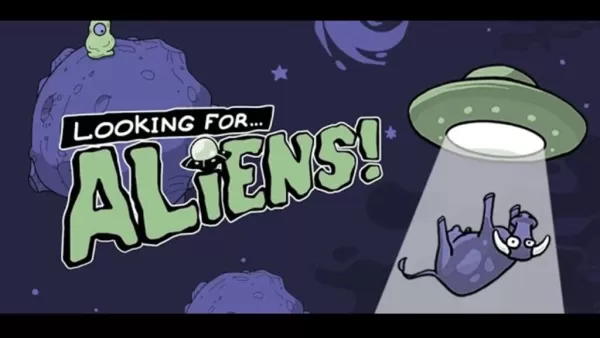With *Monster Hunter Wilds* breaking Steam records and *Resident Evil* more popular than ever thanks to *Village* and a series of stellar remakes, it's almost as if Capcom is incapable of failure. However, this wasn't always the case. Just under a decade ago, after a string of critical and commercial flops, Capcom was on the brink of collapse, having lost its direction and its audience.
Capcom was grappling with an identity crisis. *Resident Evil*, the franchise that defined survival horror, had strayed from its roots after *Resident Evil 4*. Another flagship series, *Street Fighter*, was faltering with the poorly-received *Street Fighter 5*, which could have marked the end for Capcom and its beloved games.
Yet, amidst these challenges, Capcom found a way forward. A strategic shift in game development, bolstered by a new, powerful game engine, revitalized their iconic series, sparking a period of critical and financial success that thrust Capcom back into the spotlight.
Resident Evil Lost Its Way
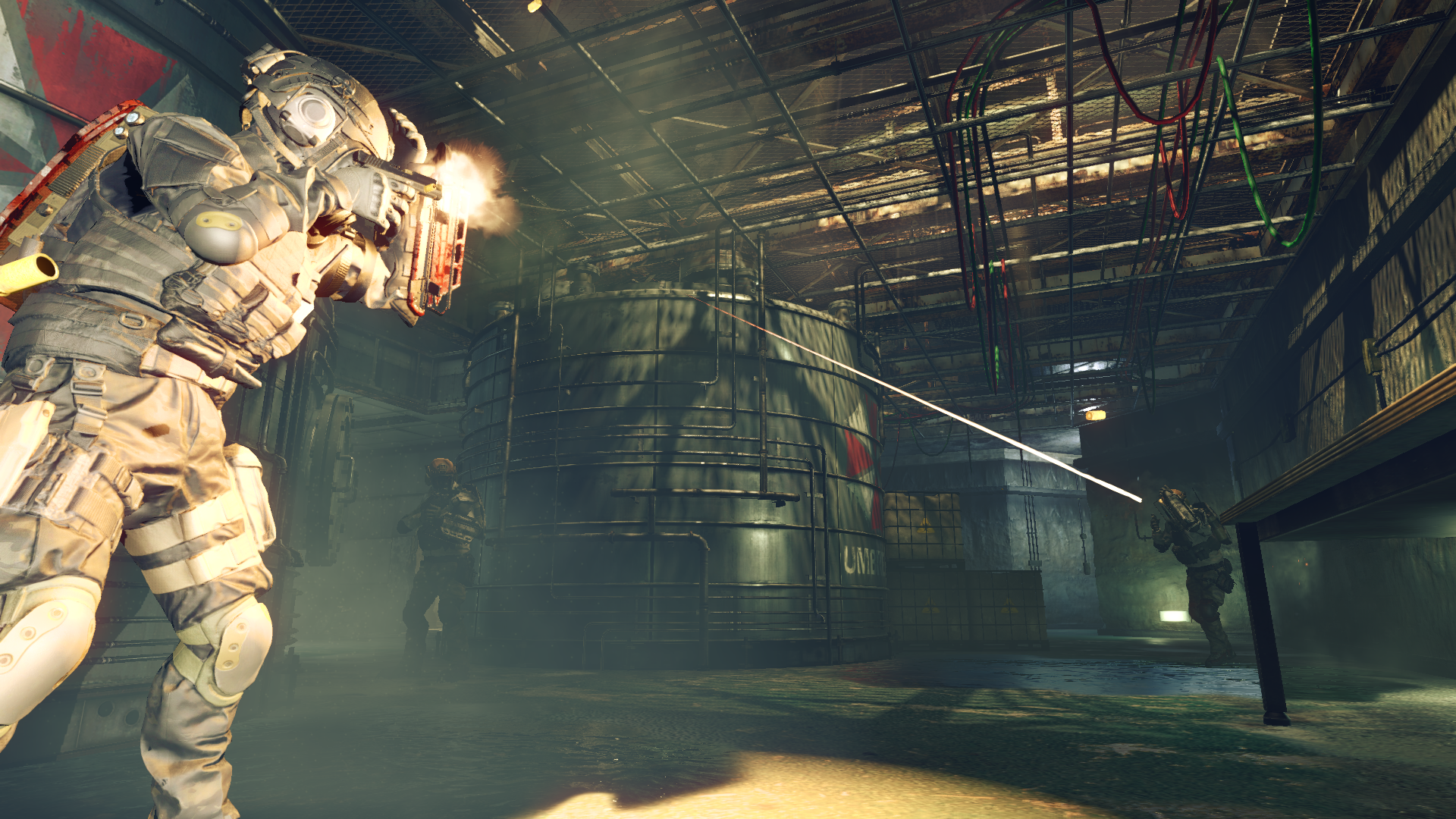 Resident Evil 6 marked a low point for the mainline series. Credit: Capcom
Resident Evil 6 marked a low point for the mainline series. Credit: Capcom
2016 was a challenging year for Capcom. The release of *Umbrella Corps*, an online co-op shooter, was met with harsh criticism from both reviewers and fans. Similarly, *Street Fighter 5* left longtime fans disappointed with its lackluster features and poor online functionality. *Dead Rising 4*, featuring the return of Frank West, would be the last new entry in the series.
This marked the lowest point in a series of underwhelming years for Capcom since 2010. The mainline *Resident Evil* games saw diminishing critical acclaim despite strong sales. *Street Fighter* struggled with a poorly received new installment, and other key franchises like *Devil May Cry* were absent. Meanwhile, *Monster Hunter*, Capcom's most successful franchise at the time, was a hit in Japan but struggled to gain traction internationally.
"Many of us started feeling that what the fans and players wanted from the series was getting a little bit separate from what we were making," said one developer. This sentiment was a far cry from the Capcom we know today, which, since 2017, has consistently delivered hit games from its most famous franchises, garnering both sales and critical acclaim. Titles such as *Monster Hunter World*, *Devil May Cry 5*, *Street Fighter 6*, and a series of industry-leading remakes, along with an acclaimed soft reboot of the *Resident Evil* series, have solidified Capcom's reputation for excellence.
Achieving this success required more than just learning from past mistakes. Capcom had to overhaul its entire strategy, from targeting different types of players to adopting new technology. IGN spoke with four of Capcom's leading creatives to understand how this gaming giant stumbled, recovered, and emerged stronger than ever.
Founded in 1979 as a maker of electronic game machines, Capcom rose to prominence in the 80s and 90s with iconic 2D games like *Street Fighter* and *Mega Man*. The company successfully transitioned to 3D with titles like *Resident Evil*, culminating in one of the greatest games of all time, *Resident Evil 4*, in 2005.
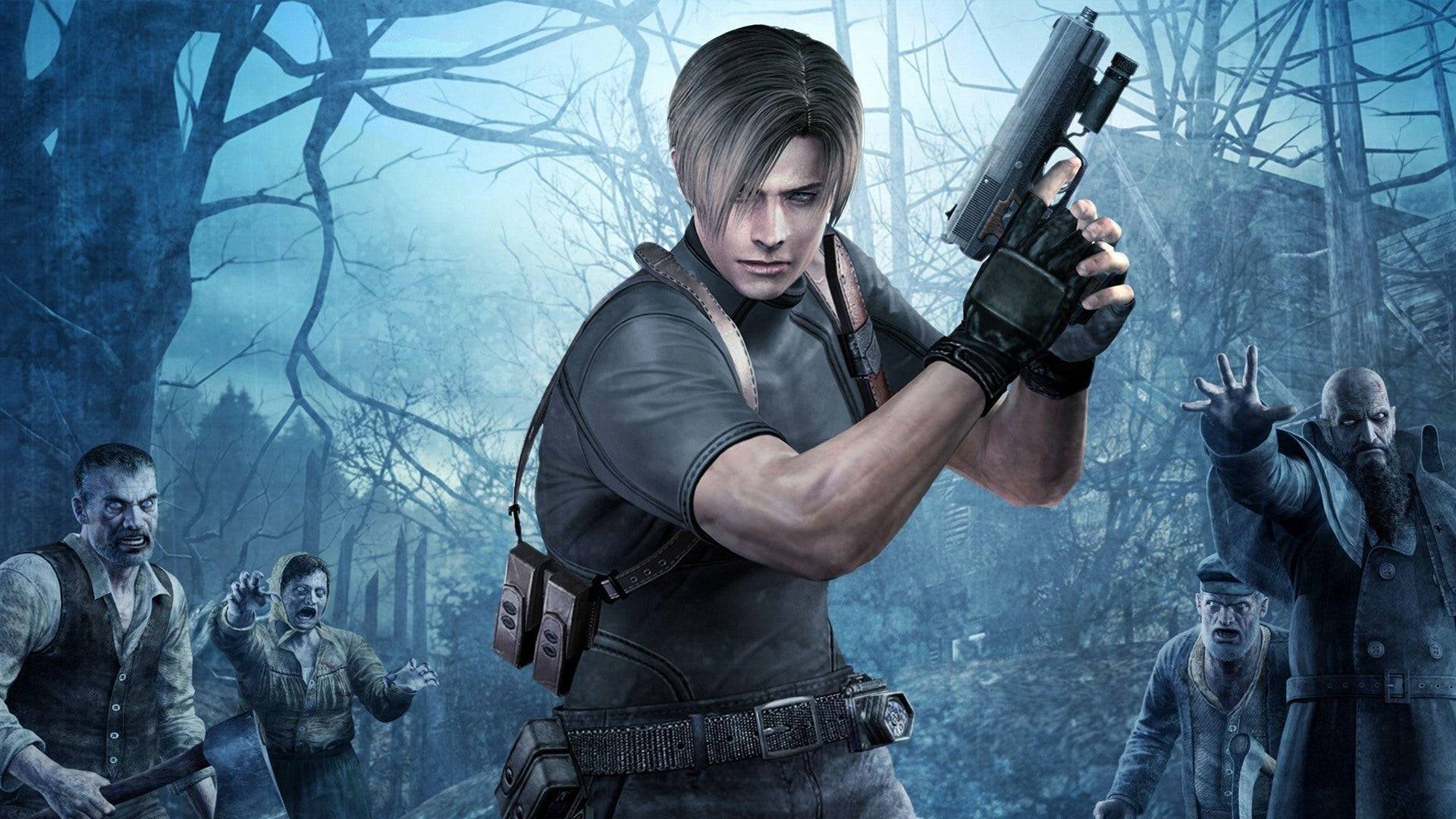 The GOAT Resident Evil game? Credit: Capcom.
The GOAT Resident Evil game? Credit: Capcom.
*Resident Evil 4* is widely regarded as a generational high point, blending horror with action inspired by horror classics and Hollywood cinema. However, subsequent games lost this balance. *Resident Evil 5* leaned heavily into action, while *Resident Evil 6* attempted to cater to both horror and action fans with mixed results, ultimately failing to satisfy either group.
This trend of struggle extended beyond *Resident Evil*. After the success of *Street Fighter 4*, its sequel, *Street Fighter 5*, was criticized for its lack of single-player content and poor online performance. Other franchises like *Devil May Cry* saw diminishing returns, leading Capcom to outsource the next game, *DmC: Devil May Cry*, to UK studio Ninja Theory. Despite becoming a cult classic, *DmC* was met with fan backlash over its changes to the series' core elements.
Capcom's efforts to capture the Western market with titles like *Lost Planet* and *Asura's Wrath* also fell short, although *Dragon's Dogma* emerged as a notable success. It was clear that Capcom needed a significant change in direction.
Street Fighter 5, The Lost Cause
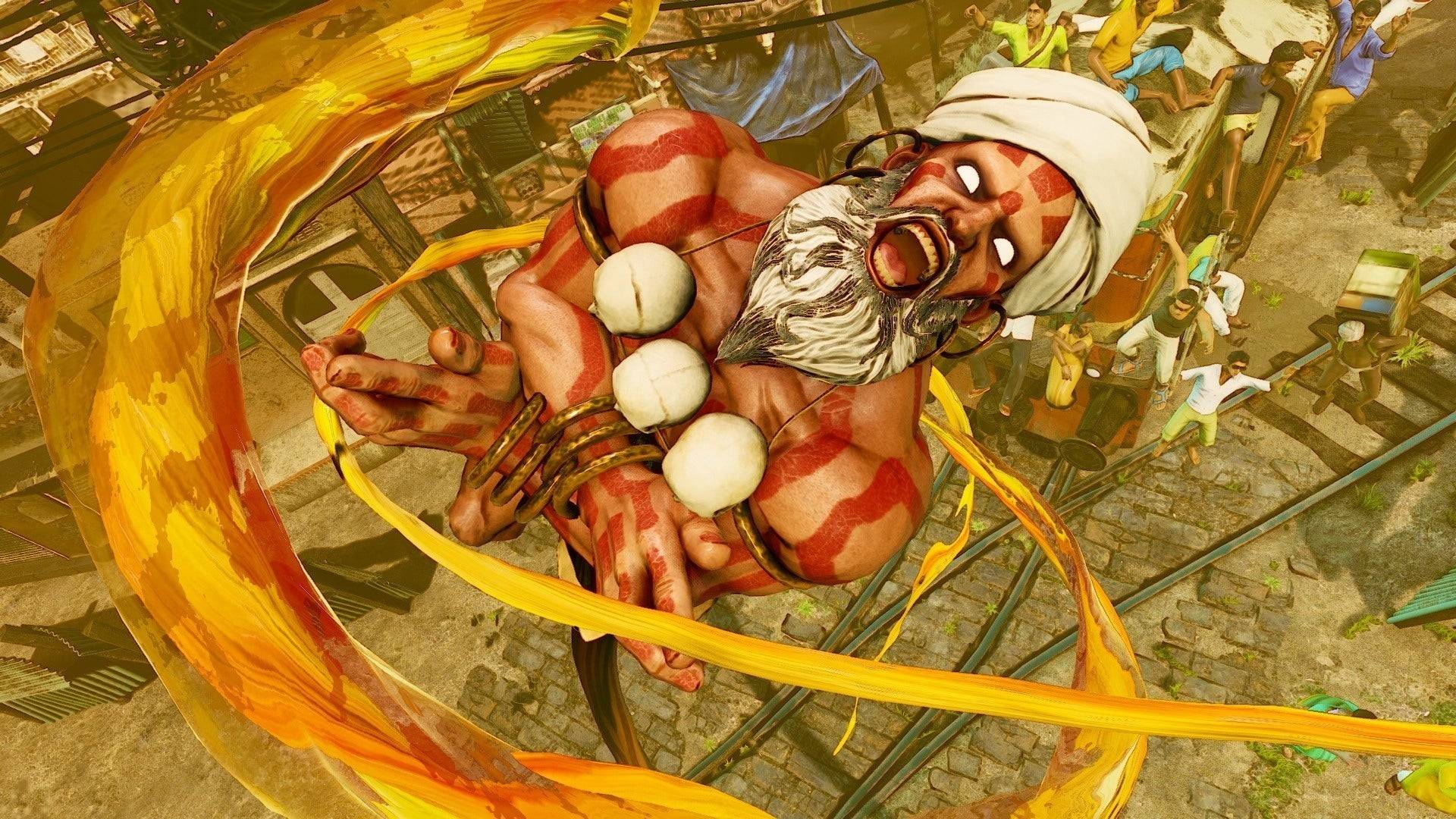 Street Fighter 5 was a let down. Credit: Capcom.
Street Fighter 5 was a let down. Credit: Capcom.
By the mid-2010s, Capcom began implementing strategic changes that would transform the company's trajectory. The first step was addressing the issues with *Street Fighter 5*. Directors Takayuki Nakayama and producer Shuhei Matsumoto were brought in to stabilize the game.
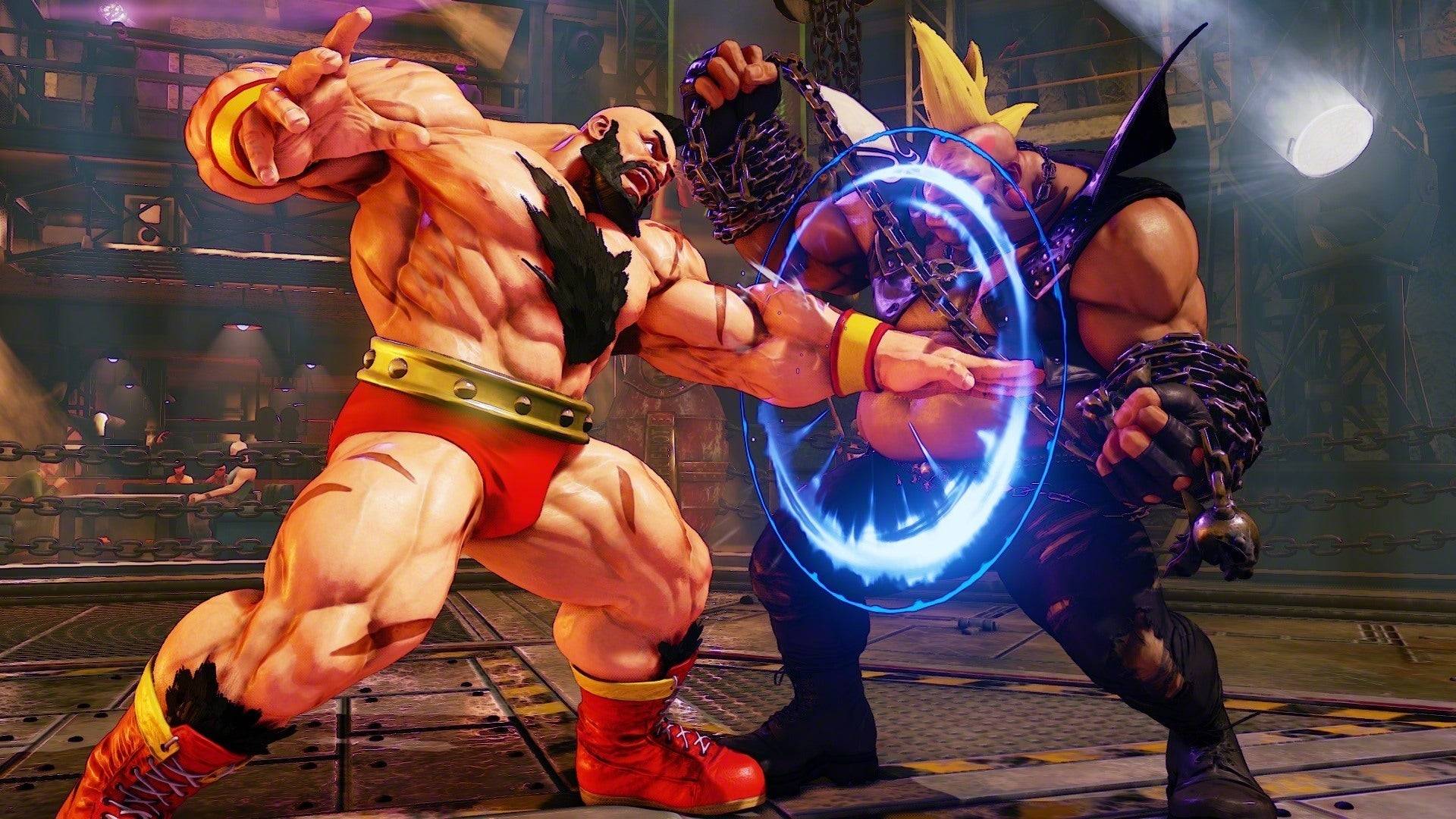 Street Fighter 5 would be improved into Street Fighter 5: Arcade Edition. Credit: Capcom.
Street Fighter 5 would be improved into Street Fighter 5: Arcade Edition. Credit: Capcom.
Nakayama admitted, "There definitely were some challenges within the production of the game, and that was part of the reason why I was brought into the team." Despite constraints, the team focused on fixing the most pressing issues, paving the way for *Street Fighter 6*.
Matsumoto explained, "There wasn’t any sort of sense of like, ‘Okay let’s just end Street Fighter 5 and focus on Street Fighter 6.’ It was more like, while we were working on Street Fighter V, we were trying to figure out what we really wanted to do in Street Fighter 6 content-wise." *Street Fighter 5* became a testing ground, with lessons learned directly influencing the development of *Street Fighter 6*, which launched to critical acclaim in 2023.
Capcom's strategy shift included not just fixing existing games but preventing future disasters. This led to crucial behind-the-scenes changes.
Monster Hunter Took Over The World
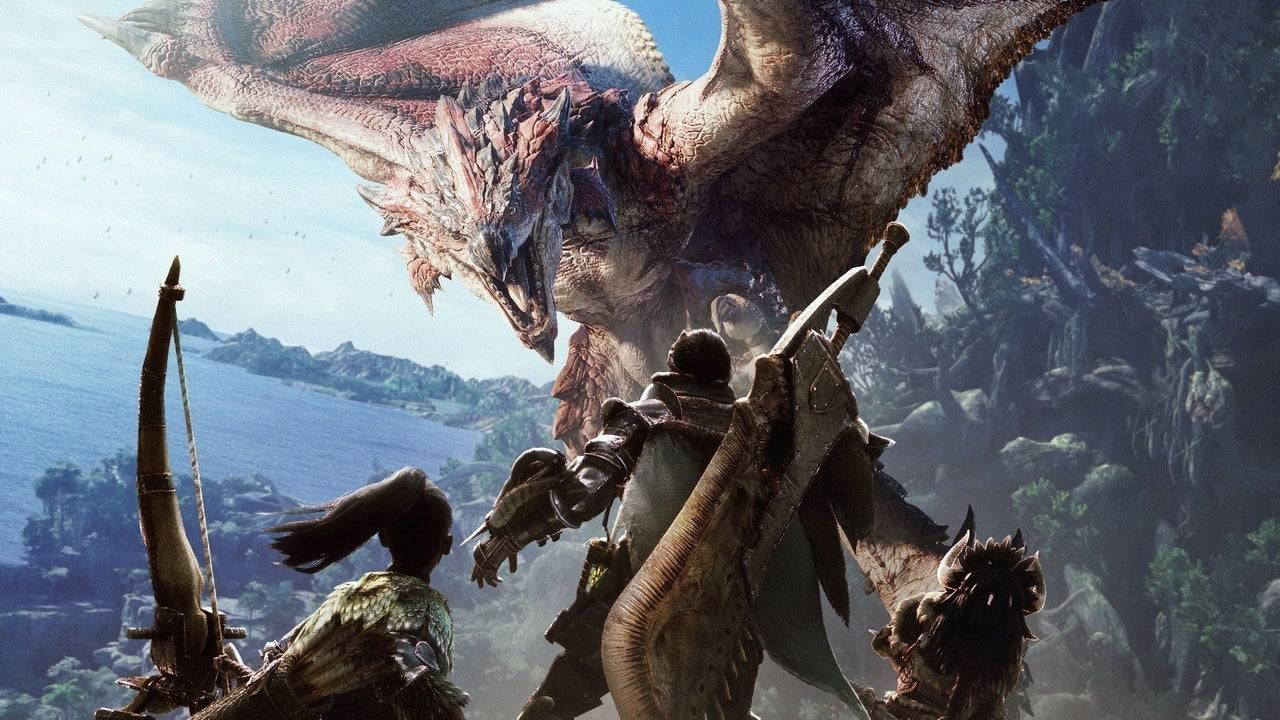 The start of the Monster Hunter revolution. Credit: Capcom.
The start of the Monster Hunter revolution. Credit: Capcom.
Around the time of *Street Fighter 5*'s launch in 2016, Capcom underwent an internal reorganization to prepare for a new generation of games using the RE Engine, a replacement for the aging MT Framework. This change was not just about tools but also about creating games for a global audience.
Hideaki Itsuno, former game director at Capcom, noted, "The change of the engine and also all teams were given a very clear goal at that point to make games that reach the global market. [Games] that are fun for everyone."
Capcom had previously focused on Western gaming trends with mixed results. However, the company realized it needed to appeal to a broader audience. Itsuno added, "I think that we had that clear goal of just focusing and not holding anything back towards making good games that would reach people from all over the world."
*Monster Hunter* epitomized this new approach. Initially more popular in Japan, the series struggled internationally. The success of *Monster Hunter Freedom Unite* on the PSP highlighted the strength of Japan's handheld market, which facilitated local multiplayer gameplay.
Executive producer Ryozo Tsujimoto explained, "20 years ago in Japan, having a network connection wasn't as easy, and there weren’t a huge amount of people playing Monster Hunter online. However, handheld consoles made multiplayer gameplay easy without internet access, and I regard it as a great success that we had players experience the game in this way."
To expand globally, *Monster Hunter: World* was released in 2018 on PlayStation 4, Xbox One, and PC, with simultaneous worldwide launches and no region-specific content. Tsujimoto said, "The fact that we called it Monster Hunter: World is really kind of a nod to the fact that we wanted to appeal to this worldwide audience that we wanted to really dig into and experience Monster Hunter for the first time."
Focus tests helped refine the game's design, leading to changes like displaying damage numbers, which broadened the game's appeal. *Monster Hunter: World* and its follow-up, *Monster Hunter Rise*, both sold over 20 million copies, marking a significant milestone for the franchise.
Tsujimoto emphasized, "At its heart, Monster Hunter really is an action game, and that sense of accomplishment you get from really mastering that action is an important aspect of Monster Hunter. But for newer players, it's really about getting to that point."
Resident Evil 7 Began Turning Things Around
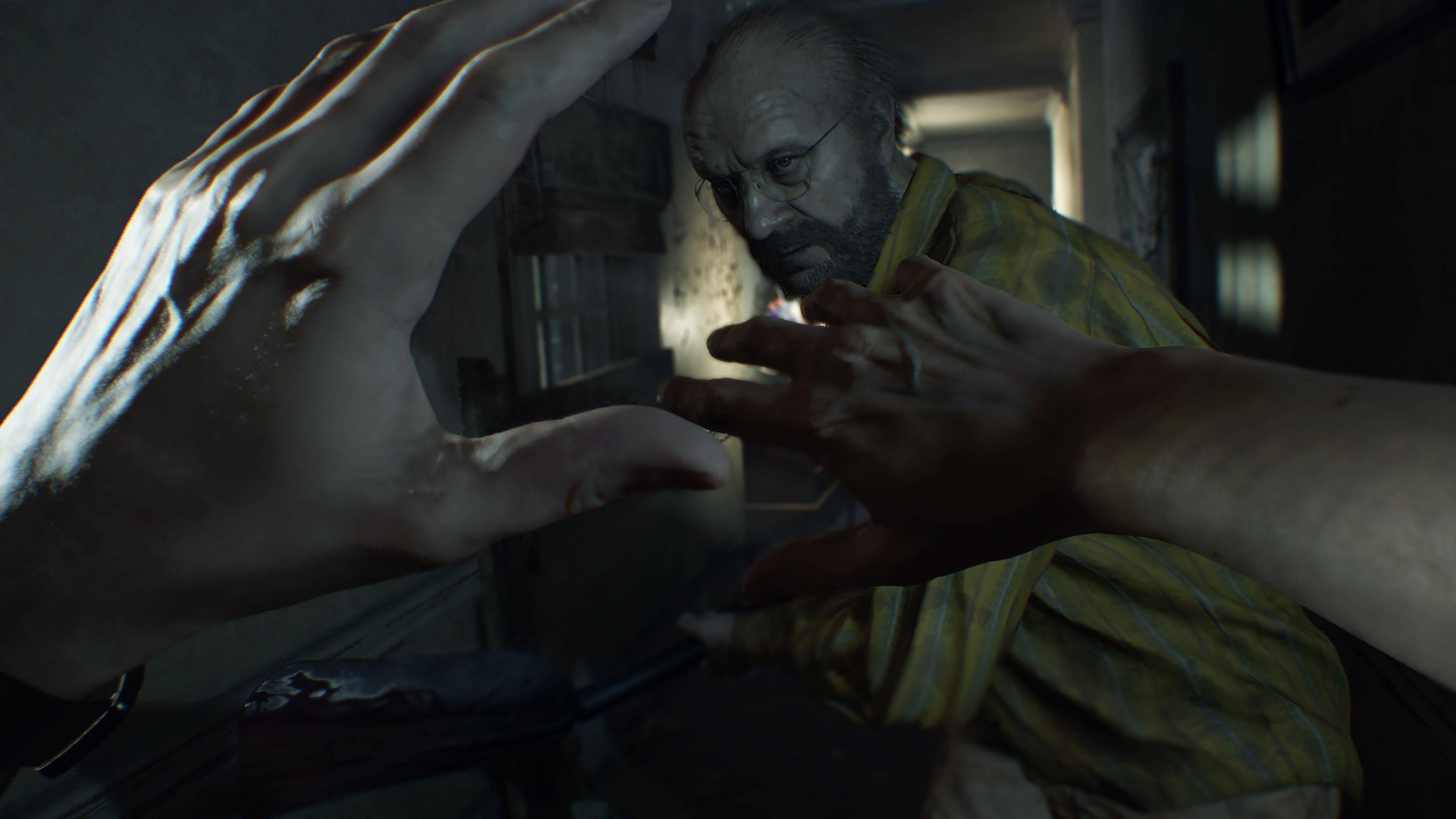 Welcome to the family. Credit: Capcom.
Welcome to the family. Credit: Capcom.
While *Monster Hunter* had a winning formula, *Resident Evil* faced its own challenges. The series needed to decide between gory action and survival horror. Executive producer Jun Takeuchi made the pivotal decision to return to survival horror.
Yasuhiro Ampo, director of *Resident Evil 2* and *4* remakes, recalled, "And around this time is when the R&D teams were divided into R&D division one and two. The executive producer of the Resident Evil series, Jun Takeuchi, took command of R&D division one, and he set the core direction that the Resident Evil series needed to go back to its origins, to its roots."
*Resident Evil 7* was announced at PlayStation's E3 2016 conference, shifting to a first-person perspective to recapture the series' horror essence. Ampo explained, "With Resident Evil 7, the executive producer, Jun Takeuchi, made it clear that we cannot underestimate how critical it is for the series for it to be scary and about survival."
The game was a hit, praised for its return to survival horror and its unsettling atmosphere. While *Resident Evil 7* and *8* remained in first-person, Capcom planned third-person remakes, starting with *Resident Evil 2*, which became one of the best-selling games in the franchise.
Ampo revealed the hesitation to remake *Resident Evil 4*, a beloved game. "As you mentioned, [Resident Evil 4] was still a title that enjoyed some popularity. So there was a lot of internal discussion on how maybe it’s not a good idea." Despite this, the *Resident Evil 4* remake was successful, refining the balance between action and horror.
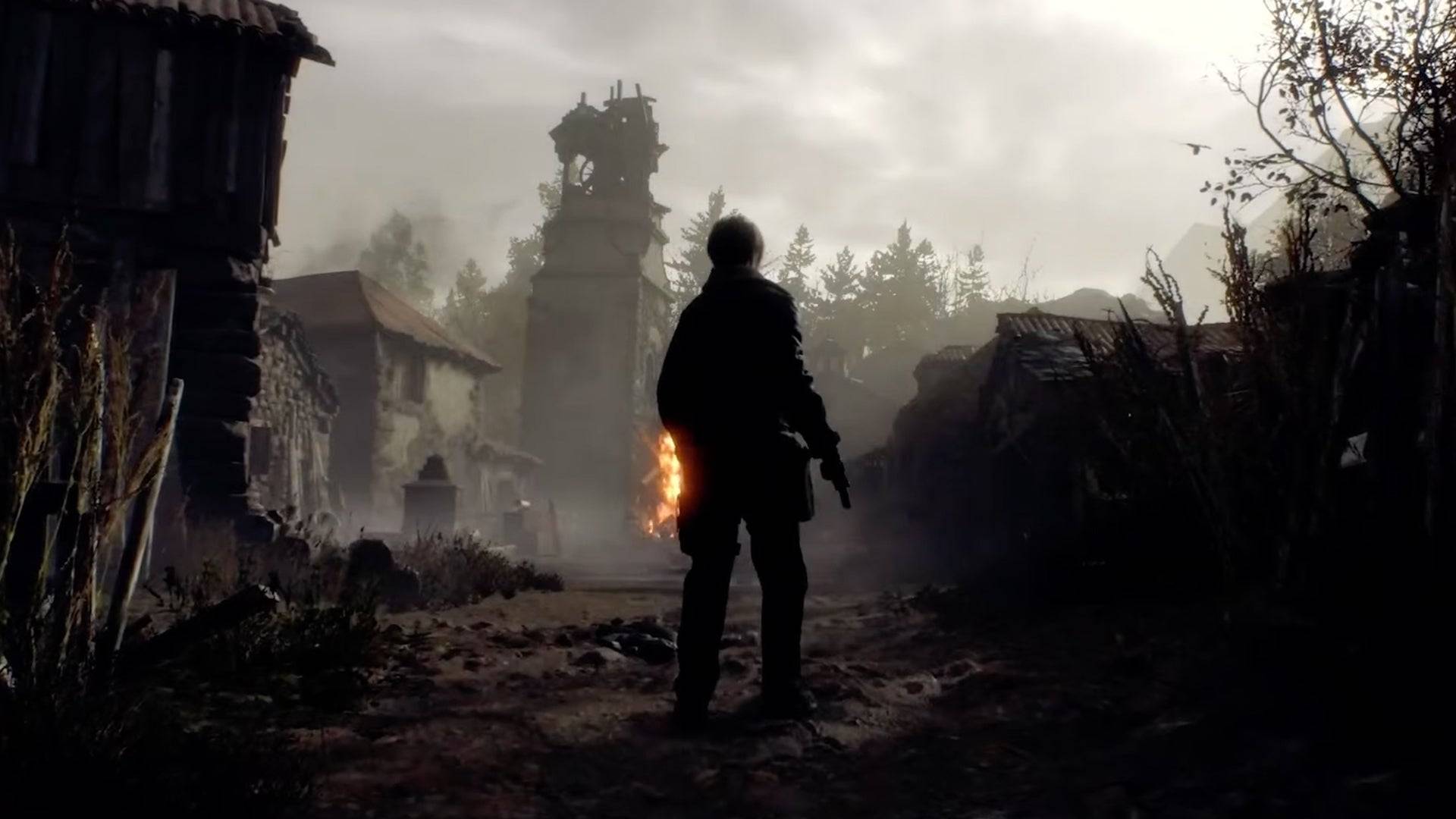 Horror reborn. Credit: Capcom.
Horror reborn. Credit: Capcom.
Simultaneously, *Devil May Cry* director Hideaki Itsuno returned with a vision to reinvigorate the action genre. After working on *Dragon's Dogma*, Itsuno sought to challenge players with *Devil May Cry 5*, leveraging the new RE Engine's capabilities.
The Reason Behind The Change
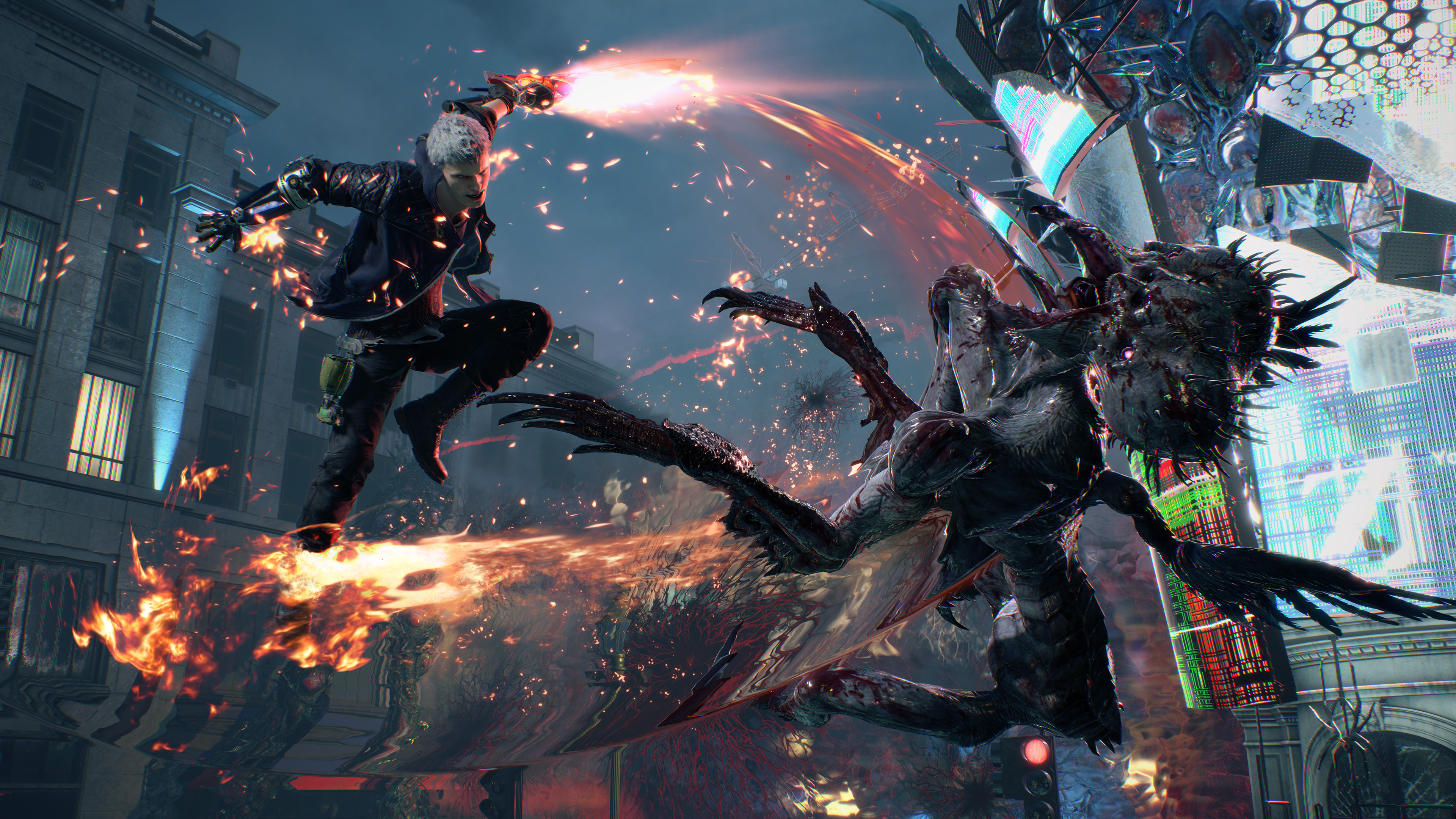 The goal? Make the coolest game ever. Credit: Capcom.
The goal? Make the coolest game ever. Credit: Capcom.
Itsuno admitted, "I felt like the main trend with action games was to make action games that were very kind. Maybe, for me, a little bit too kind to the players, lending a hand to the player too much to my liking."
The RE Engine's introduction marked a significant technological leap for Capcom, enabling photorealistic visuals and quicker development. Ampo explained, "So the original concept for the RE Engine was to allow for a development environment that was less stressful and could help us to make things quicker."
Itsuno's goal was to create the "coolest" action game, drawing inspiration from various sources. "Devil May Cry is a franchise that stands on being cool," Itsuno said. "That’s what the franchise is, it’s about being cool."
A New Capcom Golden Age
Since 2017, Capcom has consistently released critically acclaimed games, achieving a remarkable winning streak. Their focus on creating globally appealing games, powered by the advanced RE Engine, has led to unprecedented success across various genres.
Capcom's strategy has not diluted its games but rather expanded their audience while staying true to their core identities. Many other studios are now in the position Capcom was a decade ago, chasing trends and losing their way. However, Capcom's strategic changes have ushered in a new golden age.
When asked about this golden age, Street Fighter's Nakayama said, "It’s a very exciting time to be at Capcom right now. A lot of us are able to get excited about what we’re working on and are able to focus on things that we think are fun."
Monster Hunter's Tsujimoto added, "Capcom is going through a golden era, and, well, now we have to do everything we can so that this lasts one more year, one more year, and every year, one more year. Hopefully we can extend it as long as we can."









 LATEST ARTICLES
LATEST ARTICLES 


